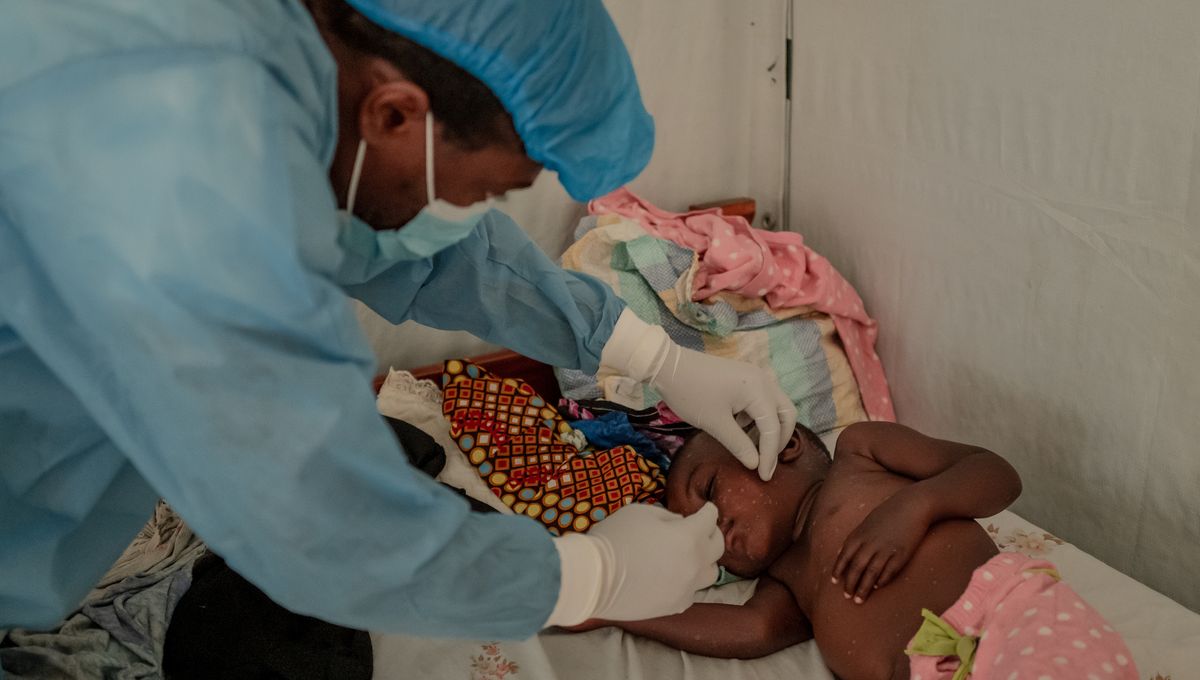
Zimbabwe is the latest country to report cases of mpox, the first in its history. Two people, an 11-year-old boy and a 24-year-old man, are known to have been infected, both with recent travel history to other countries. The variant of the virus has not been specified.
South Africa’s SABC news broadcast an announcement from Zimbabwe Health Minister Douglas Mombeshora regarding the two cases. Mombeshora said the patients reside in Harare, the capital city, and Mberengwa, respectively, and that both are currently receiving medical care at home.
The 11-year-old is reported to have traveled to South Africa, where the National Institute for Communicable Diseases calculates that there have been 25 cases of mpox this year as of October 9, in the provinces of Gauteng, KwaZulu-Natal, and Western Cape.
The 24-year-old had recently returned from Tanzania. No cases of the virus have been reported in the country so far, but it is considered at risk due to its border with the Democratic Republic of the Congo (DRC), which continues to be hardest hit by the disease. The latest World Health Organization (WHO) figures at time of writing put the number of confirmed cases in the DRC in 2024 at 6,169 with 25 deaths.
Zambia also reported its first mpox case earlier this month, in a Tanzanian national who traveled to multiple locations within Zambia before developing symptoms. As with these latest cases in Zimbabwe, it’s unclear which variant of mpox was involved.
In August, the Africa Centres for Disease Control and Prevention declared mpox a Public Health Emergency of Continental Security, a first for the agency. This was followed shortly afterward by the WHO declaring a Public Health Emergency of International Concern.
The moves came in the wake of the emergence of a new clade of mpox on the continent, which began spreading rapidly in the eastern DRC and to other neighboring countries, some for the very first time. The new clade, designated Ib, is thought to cause more severe disease and carry a higher risk of death than the clade II virus that caused the last global mpox outbreak in 2022.
Although fears around clade Ib mpox are heightened, the majority of cases of the disease are mild. The symptoms include a fever, headache, and muscle aches, which then progress to the characteristic rash. Itchy, painful blisters can develop on the skin anywhere on the body. Most people recover within about four weeks, but severe illness and death is a particular risk in the very young, pregnant people, and those with compromised immune systems.
While the spread of clade II around the world was largely driven by sexual contact, experts are also concerned that clade Ib is more readily transmissible. A person with mpox can pass on the disease until the rash is completely healed.
A vaccine rollout has begun in a number of African countries to try to get the outbreak under control. Meanwhile, the most recent annual report from the Global Preparedness Monitoring Board cites the mpox situation, saying it “runs the risk of repeating all the mistakes of inequitable pandemic response” that we saw with COVID-19. They’re two different viruses, but the report also points out that the next pandemic likely will be very different from COVID – one more reason why the ongoing situation in Africa continues to be monitored so closely.
Source Link: Zimbabwe Reports Its First Mpox Cases As Outbreak Continues To Spread Through Africa